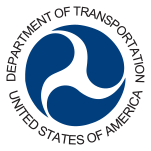Investigations
Former Shell Pipeline Company, L.P. Official Convicted
Summary
On January 7, 2014, Randy Jones, former Onshore Corrosion Coordinator for Shell Pipeline Company, L.P. (Shell), pleaded guilty in U.S. District Court, Milwaukee, Wisconsin. Jones failed to conduct bi-monthly voltage readings and an annual survey of a pipeline used to transport jet fuel in violation of the Pipeline Safety Act (PSA). He also pled guilty to making a false statement to the Pipeline and Hazardous Material Safety Administration (PHMSA).
Our investigation was initiated following a referral from PHMSA. They reported that 9,000 gallons of jet fuel from the Shell pipeline at the General Mitchell International Airport (GMIA), Milwaukee, Wisconsin, were spilled. The response and cleanup costs for the spill was approximately $19.3 million.
Jones was employed by Shell from 1992 through 2012. From 2010 until 2012, he was a corrosion coordinator and was responsible for Shell pipelines servicing GMIA and the Chicago O'Hare International Airport. From around January through December 2011, Jones knowingly and willfully failed to conduct an annual survey of the Shell pipeline and failed to take bi-monthly voltage readings from the rectifiers connected to the pipeline. In December 2011, Jones made a false material statement when he entered fraudulent survey data and false bi-monthly voltage readings for rectifiers connected to the pipeline into a computer system used to generate reports for PHMSA.
The PSA, which establishes standards for the safe operation of the hazardous materials in pipelines, states that buried or submerged metal pipelines must be protected to prevent corrosion. This involves the use of a device called a rectifier which applies a negative current to soil near the pipeline to keep corrosion away from the pipe. The operator of the pipeline is required to conduct bi-monthly readings of the voltage generated from the rectifier and to conduct an annual survey of the pipeline to ensure that the pipeline is adequately protected from corrosion. PHMSA is the primary agency responsible for regulating and enforcing the PSA.
We are conducting this investigation with the U.S. Coast Guard Investigative Service, the Environmental Protection Agency - Criminal Investigation Division, and the Federal Bureau of Investigation, with assistance from PHMSA.

 Department of Justice - Press Release
Department of Justice - Press Release